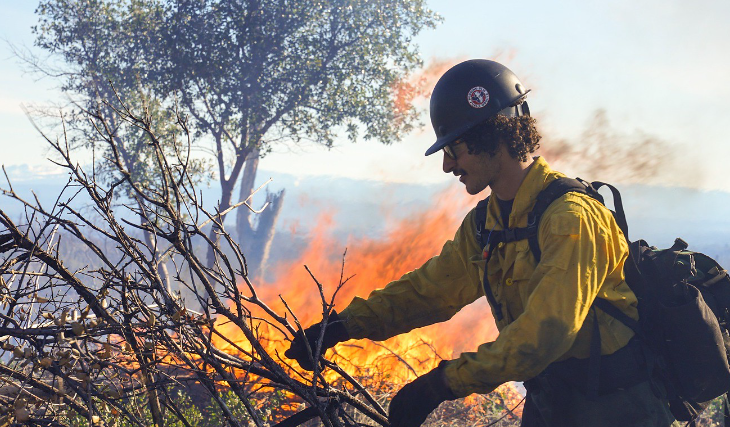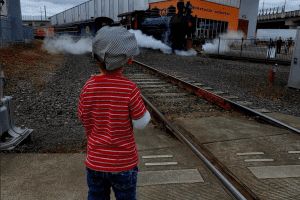
Best Ways to Put Out and Prevent Wildfires in Oregon, Washington, and Idaho
Learn the best methods to extinguish and prevent wildfires in Oregon, Washington, and Idaho. Discover effective wildfire prevention measures, fire safety tips, and the importance of responsible fire behavior to protect the environment and communities.
Introduction
Wildfires can cause immense devastation to the environment, wildlife, and human communities. In the Pacific Northwest, states like Oregon, Washington, and Idaho are particularly susceptible to wildfires due to their dry and hot climate conditions. Preventing wildfires and knowing how to handle them when they occur are vital skills for residents in these regions. This comprehensive guide will delve into the best ways to put out and prevent wildfires in Oregon, Washington, and Idaho, promoting responsible fire behavior to safeguard lives and ecosystems.
Understanding Wildfire Behavior
Before diving into the methods of extinguishing and preventing wildfires, it is crucial to comprehend how wildfires behave.
- Fire Triangle The fire triangle comprises three elements essential for a fire: heat, fuel, and oxygen. Removing any of these components can help control a wildfire.
- Fire Spread Patterns Wildfires can spread in various ways, including ground fires, crown fires, and ember showers. Understanding these patterns aids in predicting fire behavior.
Best Ways to Extinguish Wildfires
When a wildfire breaks out, swift action is essential to contain and extinguish it before it spreads further.
- Water Bombers and Firefighting Aircraft Water bombers and firefighting aircraft are instrumental in delivering fire retardants and water to inaccessible areas, suppressing the flames from above.
- Backfiring and Controlled Burns Creating controlled burns or backfires can remove potential fuel sources, creating firebreaks to halt the fire’s advance.
- Firebreaks Constructing firebreaks involves clearing vegetation and creating gaps to prevent the fire’s spread and protect specific areas.
Wildfire Prevention Measures
Preventing wildfires is crucial to reducing their frequency and impact.
- Campfire Safety When camping, ensure to build fires only in designated fire pits, extinguishing them completely before leaving the site.
- Proper Disposal of Smoking Materials Never discard cigarettes, cigars, or smoking materials in vegetation or from moving vehicles.
- Equipment Safety Maintain machinery and vehicles to prevent sparks and potential fire starts.
- Fire Restrictions Adhere to fire restrictions and bans during periods of high fire danger.
Importance of Responsible Fire Behavior
Promoting responsible fire behavior is essential to reduce the risk of wildfires caused by human activities.
- Educating the Public Raising awareness about responsible fire behavior and its consequences can encourage better fire practices.
- Firewise Communities Foster Firewise communities that work together to mitigate fire risks and develop fire safety plans.
- Reporting Fires Promptly Promptly report any signs of wildfires to local authorities to initiate quick response and containment.
Fire Safety Tips for Homeowners
Homeowners can play a vital role in preventing wildfires by safeguarding their properties.
- Defensible Space Create a defensible space around your property by clearing flammable vegetation and debris.
- Roof and Siding Maintenance Choose fire-resistant roofing materials and maintain them regularly to reduce the risk of fire ignitions.
- Ember-Resistant Vents Install ember-resistant vents to prevent embers from entering your home.
Frequently Asked Questions (FAQs)
- Can I use fireworks during wildfire season? Fireworks are prohibited during wildfire season, as they can easily start fires and pose significant risks.
- What should I do if I spot a wildfire in my area? If you spot a wildfire, immediately call emergency services and provide details of the location and size of the fire.
- Are controlled burns safe? Controlled burns, when conducted by trained professionals under the right conditions, are safe and serve as effective wildfire prevention measures.
- How can I prepare my family for a potential wildfire evacuation? Prepare an emergency kit, create an evacuation plan with clear escape routes, and practice the plan with your family.
- Why is it essential to follow fire restrictions and bans? Fire restrictions and bans are implemented to prevent human-caused wildfires during periods of heightened fire danger.
- Is it safe to leave my vehicle running in dry grassy areas? No, it is not safe to leave your vehicle running in dry grassy areas, as the heat from the exhaust can ignite the surrounding vegetation.
Conclusion
By understanding wildfire behavior, practicing effective extinguishing techniques, and implementing wildfire prevention measures, we can work together to reduce the devastating impact of wildfires in Oregon, Washington, and Idaho. Responsible fire behavior and community cooperation are essential in protecting our environment and communities from these natural disasters.
Remember, preventing wildfires is a collective effort. Each individual can make a difference by being vigilant, following fire safety guidelines, and reporting potential fire hazards promptly. Together, we can create a safer and more resilient Pacific Northwest, prepared to face the challenges of wildfire season. Let’s take the necessary precautions to preserve our precious landscapes and ensure the safety of our loved ones.
ALSO READ:
Ways You Can Help Stop Wildfires at Home
Best Practices for Creating Defensible Space to Protect Against Wildfires
Sources:
Fire Science core curriculum-Module 5 from OSU, and experience creating defensible space on the farm growing up.

